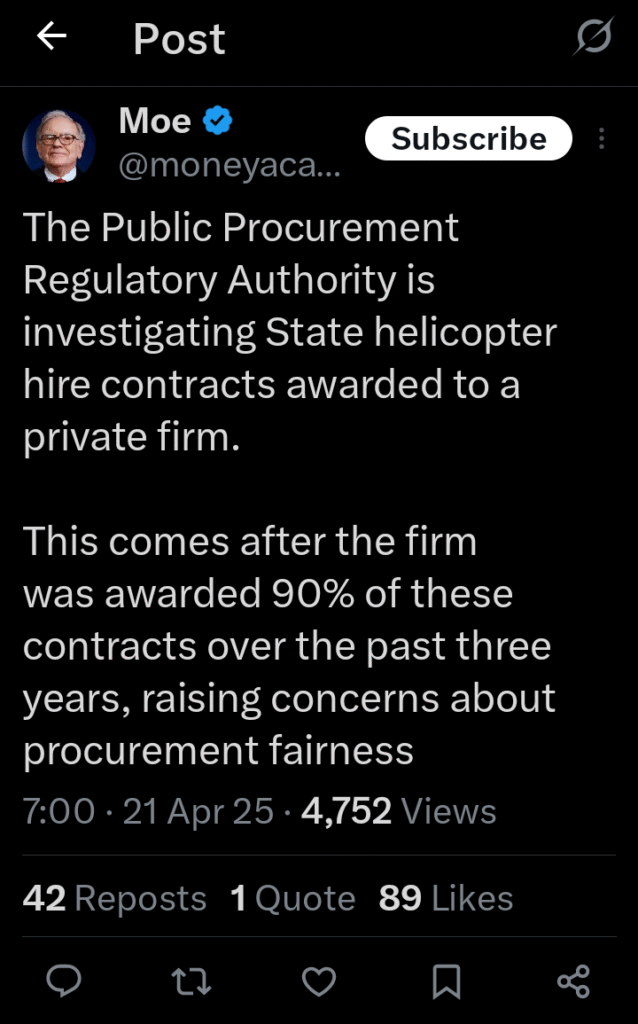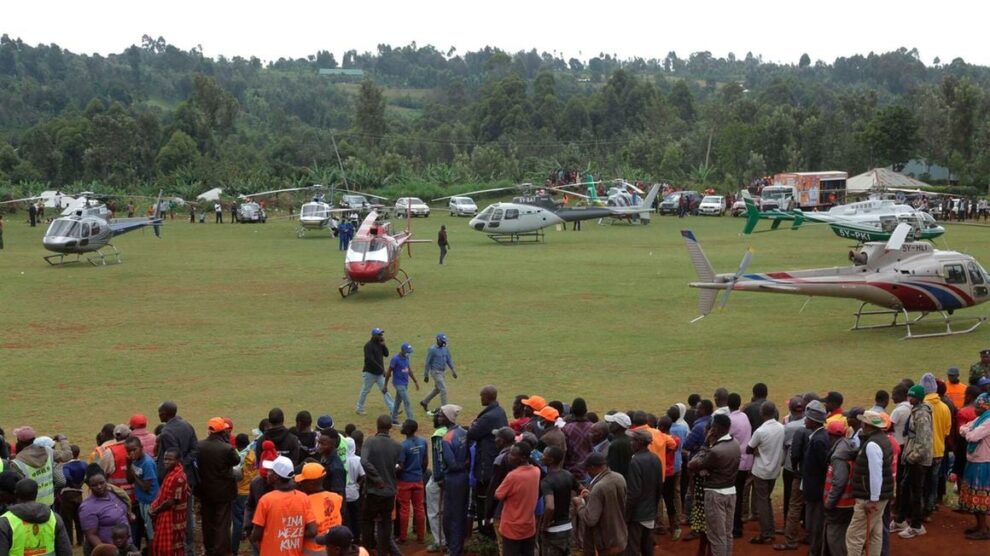The Public Procurement Regulatory Authority (PPRA) has started investigations into how state helicopter hire contracts have been awarded over the past three years. This decision comes after it emerged that one private firm has received about 90 percent of all such contracts during that period.
The situation has raised serious concerns about fairness and transparency in public procurement, especially for contracts involving large amounts of money and government resources.
The firm in question, whose name has not been officially released, has enjoyed an almost total monopoly in supplying helicopters for government use. These helicopters are often used by top government officials, security agencies, and emergency services.
The frequency and value of the contracts suggest that billions of shillings could be involved. What has sparked concern is how this one company managed to outshine or outmaneuver all other potential service providers in nearly every tender.
Sources within government circles claim that the tendering process may have been tilted in favor of the firm through unclear criteria, questionable pre-qualification requirements, or backdoor lobbying.

There are also claims that certain officials within the Ministry of Interior and the Office of the President may have played a role in pushing contracts towards this one firm without giving other companies a fair chance.
This points to a wider pattern of corruption and misuse of public funds.
The PPRA says its main focus will be to review the tendering procedures used in awarding the helicopter contracts and examine whether procurement laws were followed.
If it is found that the process was manipulated or biased, then it may lead to cancelation of the contracts or legal action against the individuals involved.
Investigators are also keen to know whether the country received value for money from the services offered by the firm or if taxpayers were overcharged.
The lack of competition in public contracts has long been a concern in Kenya, where political influence often determines who wins large tenders. This case is likely to increase calls for the strengthening of oversight bodies and tighter enforcement of procurement rules.
The fact that one company could dominate such a critical service without being challenged should worry both the public and accountability institutions. It also raises questions about whether qualified firms were pushed out of the race, leading to reduced innovation, inflated costs, and possible security risks.
The public will be watching to see whether this matter is swept under the carpet like many others before it or if it will mark a turning point in how public resources are managed.
For now, the spotlight remains on the PPRA to deliver a transparent and firm report on what really happened with the state helicopter hire deals.





















Add Comment